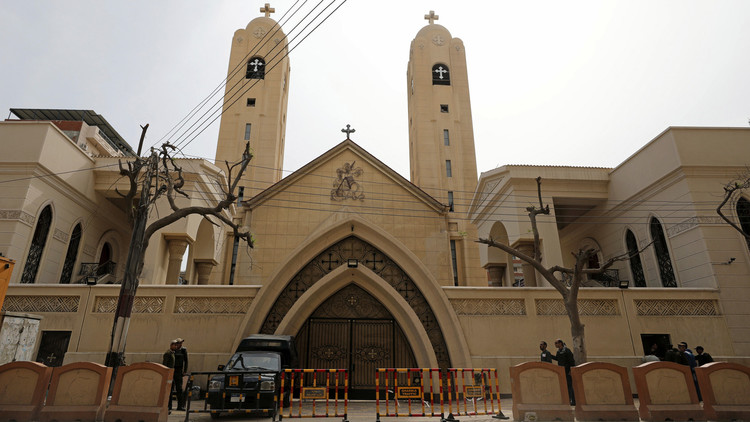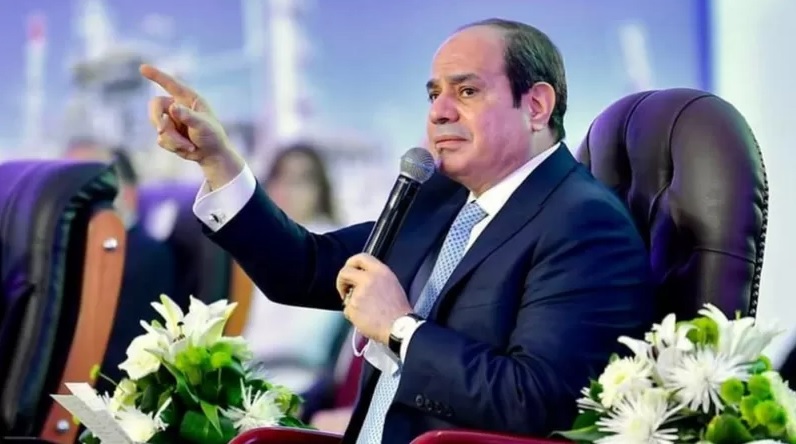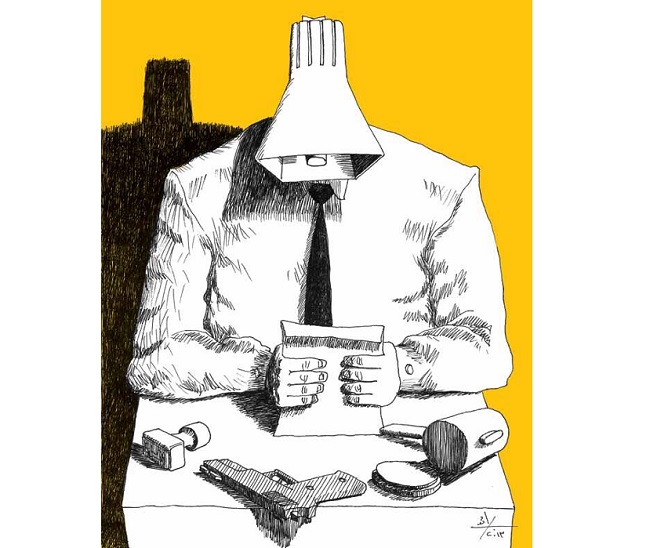Church Law in Egypt: Restriction of Religious Rites in al-Furn – Minya

There is a new development regarding the crisis of prohibiting worshipers from praying in a church in the village of Minya. Last August, an Egyptian Cabinet spokesman said in a telephone interview for a TV program that there is no internal statute for the new law regulating the construction and renovation of churches.[1] He added that the new law has been effective since its publication in the Official Gazette,[2] after the prime minister issued Executive Decision No. 199 of 2017. This statement was made in response to the incident of the morning of August 20. At the time, security forces of the governorate closed and besieged a church that has long been serving Copts of al-Furn village of the Abu Qirqas Center. The closure took place on the pretext that the church is not licensed.
The head of the Abu Qirqas Center had stated earlier that the reason for closing the church was due to an objection by some Muslims in the village to Christians praying in the unlicensed building. He added that the percentage of Copts in the village does not exceed 15% of the population in the area. Accordingly, security forces intervened to prevent any clashes between the residents. However, this claim contradicts the fact that on the morning of August 22, Christians of the village held the mass of the Assumption of Virgin Mary in the street without objection from the villagers.
Social networks circulated the news that the security forces’ rigor is a reaction to the statement made last week by Bishop Makarios of Minya. The Bishop had said that the construction or renovation of churches are not being allowed in order to placate the sentiment of extremists. He added that many churches in Minya are built without a bell, a dome, or a cross, to comply with the wishes of the hardliners. Bishop Makarios had announced that Minya has 70 villages, oases, and manors without any church, and that there were 15 churches closed by orders of security apparatuses.
A Law Confiscating Freedoms
This incident comes a year after the House of Representatives passed the law on the construction and renovation of churches. This was a long-awaited law, but it was disappointing for many. Parliament received much criticism, some related to the incident of the Church in al-Furn village.[3] Such criticism centered around the following.
First: That issuing said law was a formality in order to comply with the constitutional time limit provided for in Article 235,[4] which stipulates that such law be issued in the first parliamentary term. Parliament issued the law without any real regard for its content and purpose. The law was not an end in itself. Rather, it was a means to ensure the practice of religious rites for Christians.
Second: Closing a church and blocking worshippers heading to celebrate the Assumption of Mary created two dilemmas that the law confused as one. The first is the gathering of a person or a group to pray or celebrate a religious occasion in a private or public place; and, the second is praying and practicing religious rituals in places of worship. There is a difference between building of places of worship and churches on one hand, and religious practice on the other. The former is regulated by law. The latter is a right guaranteed to every citizen who can practice their religious rituals individually or within a group, anywhere. The right of individuals and groups to hold religious events and ceremonies should not be restricted on the pretext that the place is not one for worship. Perhaps, this is one of the most important criticisms of the law which stipulates that practice of religious rites and celebrations must be held in a church. This is what Article 1 thereof stipulates, defining a church as a place where prayers and religious rituals of Christian communities are practiced, then describing the form and components of these rituals; thus, affecting the independence of the Christian religious institution and the wishes of church members, and the local environment. The said law has also impeded freedom of assembly for religious purposes, when gatherings should be allowed in homes and public places without a permit. After all, freedom of assembly and freedom of religious practice are rights guaranteed by the Constitution and affirmed by international conventions.[5] Following criticism of churches, the Christian residents of al-Furn were perhaps exercising this right when they held the mass in the streets without being dispersed by security forces. The latter feared that doing so would ignite sectarian incidents in a province known for sectarian violence.
Finally, there comes the procedural provisions (8, 9, and 10). These regulate the licensing and codification of churches, unlicensed service buildings, and private homes used for prayer, as well as the provision of religious services to Christians. Article 8 of the law stipulates that the prime minister form a committee of ministers, competent bodies, and representative of the confession to study the conditions of the buildings and suggest solutions to rectify their status. The prime minister issued a decision to establish this committee early this year.[6] Members of the committee include representatives of the ministers of defense, local development, justice, archeology, parliament affairs, administrative oversight, and others of the general intelligence and the national security sector. It holds meetings once a month or as needed, and its deliberations are confidential. The law set a period of one year as of its date of enforcement for submission of applications to the committee. However, it did not specify a period for the work of the committee and issuance of decisions regarding the lists of churches (whose status are to be rectified) submitted thereto. In addition, it did not mention the procedures and steps required in the event of a dispute between representative of the confession and members of the committee on the interpretation of a certain condition that the building in question should meet, or on the rejection of an application despite meeting the required conditions.
In Article 9, the law set the following five conditions that must be met in these buildings, before the committee accepts to study their condition in order to rectify their status.
1- Proof of safety of the construction. This condition does not apply to hundreds of old perished churches built decades ago, and still serving worshippers with the knowledge of authorities. Dozens of applications were submitted for demolition and reconstruction of these churches, but the authorities rejected them. In addition, this condition does not apply to “home churches” in rural areas that are built of mud-brick, like the church of the al-Furn village.
2- The construction of the building should comply with the existing construction requirements. This is another obstacle since churches in Egyptian villages and random areas do not comply with the construction law, and are outside the scope of urban planning.
3- Compliance with the rules and regulations regulated by the department of state affairs at the Ministry of Defense. The content of this condition is unpalatable and incomprehensible. What does the Department of State Affairs have to do with granting permits to churches?
4- Compliance with laws governing public and private property of the state.
5- Submission of the application within one year of the date of enforcement of the law.
These conditions hinder the status of rectification of hundreds of existing churches. Instead, the law should stipulate that a list of churches be submitted and granted permits; then, the religious institution or members of the church would adjust their statuses according to the status of every church, and its compatibility with the surrounding local environment. The role of the government should be limited to respecting and supporting the right to construction to make sure the freedom of religious practice is guaranteed. Instead, the law grants broad powers to the executive authority to violate the right to build and renovate churches; and, it gives the ultimate power to security apparatuses to grant permits, monitor activities, and observe any other adjustments to Christian places of worship.
Rather than a solution to a decades-long tenacious problem, this law has become the biggest obstacle to the right of Christian citizens to practice their religion, as evident in the security and administrative complexities stipulated therein. Such law is an infringement of basic rights enshrined in the Constitution.
While the right to practice religious rites is one that must be guaranteed to citizens of a certain faith, the violations this particular community of faith is facing serves as a clear example of the obstacles placed in the way of the freedom of religious practice, and the freedom of belief in general for other religious communities and minorities in Egypt.
This article is an edited translation from Arabic.
__________
[1] A statement by Spokesperson of the Cabinet Ashraf Sultan on the program “Kalam Tani”, broadcasted on Dream 2 channel on August 25, 2017, with presenter Rasha Nabil; see: https://goo.gl/A2YK4D.
[2] The Egyptian Parliament passed a new law for the construction and renovation of churches, Law No. 80 of 2016, on August 30, 2016.
[3] See: Menna Omar’s, “Qanun Binaʾ Wa Tarmim al-Kanaʾis Fi Misr: Taqnin al-Tamyiz Wa al- Taʾifiyya”, The Legal Agenda, December 1, 2016; also, see: Mohamed Adel Souliman’s, “Mulahazat Ala Qanun Binaʾ al-Kanaʾis: Siyaghat Adabiyya Wa Musadara Fiʿliyya”, The Legal Agenda, September 2, 2016.
[4] Article 235 of the 2014 Egyptian Constitution stipulates that: “In its first term after this Constitution comes into effect, the House of Representatives shall issue a law to regulate the construction and renovation of churches, guaranteeing Christians the freedom to practice their religious rites.”
[5] Article 64 of the Constitution stipulates that: “Freedom of belief shall be protected. The state shall guarantee the freedom to practice religious rites and to establish places of worship for the divine religions as regulated by law.”
[6] A press release on the prime minister issuing a decision to form a committee to rectify the status of churches, al-Masry al-Youm newspaper; see: https://goo.gl/zzUvWd.



